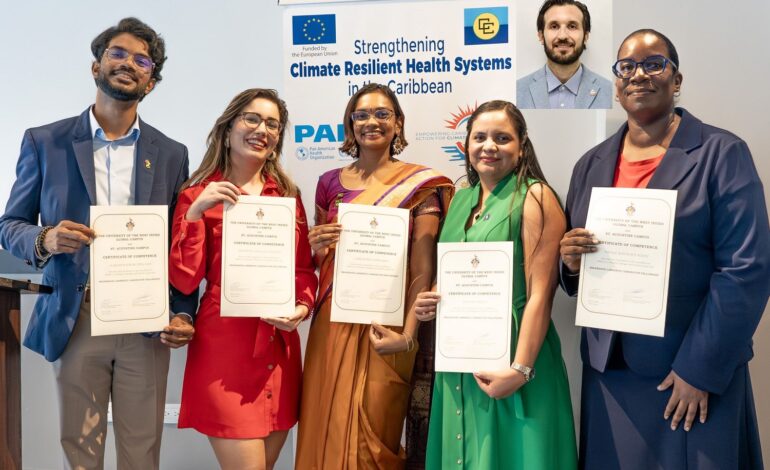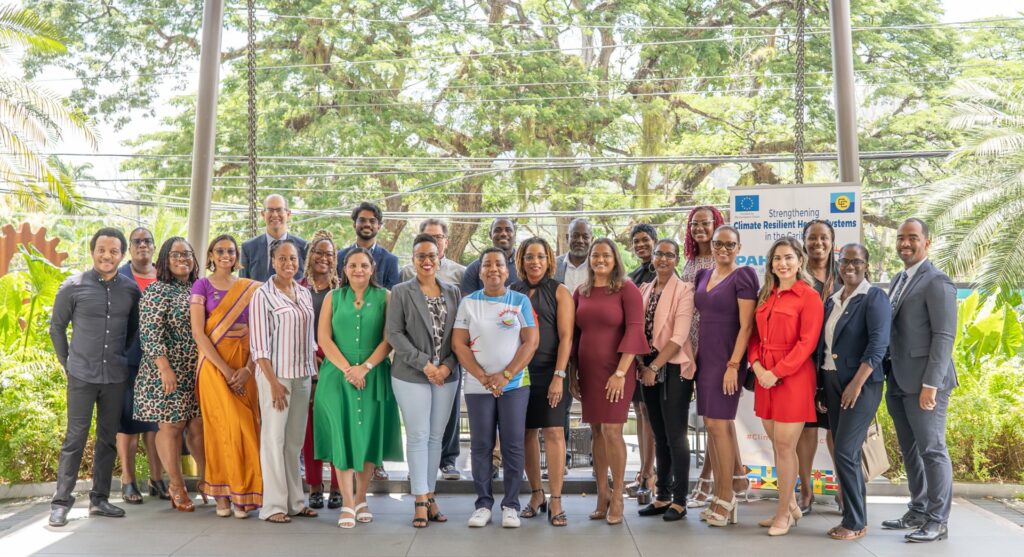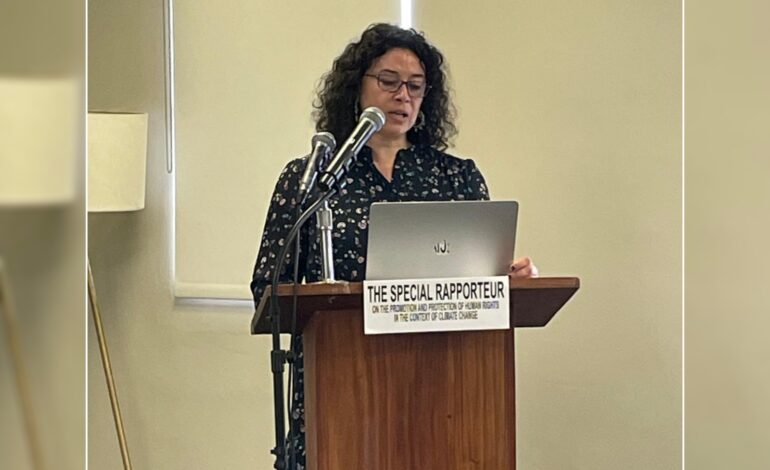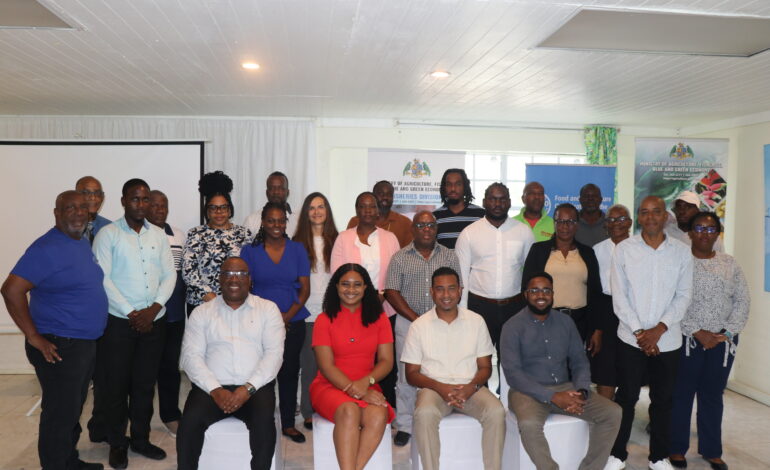
Six more climate change and health leaders have graduated from the University of the West Indies (UW)-led, European Union (EU)-funded, Pan American Health Organisation (PAHO)-coordinated fellowship. The latest leaders hail from Barbados, Belize, Dominican Republic and Guyana.
The graduation ceremony was held in Trinidad and Tobago. All the cohorts converged to welcome the latest graduates and participate in a one-day climate change and health symposium. It was held under the theme: Sustaining Action for Climate Change and Health in the Caribbean: Enhancing Innovation and Technology for a Climate-Resilient Future.
The cohort four graduates are: Nayan Persaud, Principal Environmental Health Officer at the Ministry of Health, Guyana; Anniete Cohn-Lois, Consultant for the International Finance Corporation (IFC) and the Inter-American Development Bank (IADB) and Adjunct Professor and Researcher at Universidad Iberoamericana, Dominican Republic; Christine Samwaroo, Founder and Managing Director of The Breadfruit Collective, Guyana; Edalmi Pinelo, Chief Climate Change Officer in the Ministry of Sustainable Development and Climate Change, Belize; Nicole N. Hazel, Managing Director and Principal Consultant of East Bridge Global Inc., Barbados and Stefano Todde, Portfolio Coordinator at the Ministry of Health and Executive Secretary for the Country Coordination Mechanism of the Global Fund, Dominican Republic.
While delivering remarks at the graduation, PAHO/WHO Representative for Trinidad and Tobago, Aruba, Curacao, Saint Maarten, Bonaire, Sint Eustatius and Saba, Dr. Gabriel Vivas Francesconi described the project and the fellowship as critical to empowering the Region to address the complex and growing intersection of climate change and health.
“Whether by developing early warning systems, strengthening community awareness or advocating for policy change, our Fellows have shown how knowledge, passion, and action can converge to create real impact. The diversity of professions among this group—from medical doctors to environmental scientists, economists to communicators—is a testament to the strength of the One Health approach. It reminds us that climate resilience in health is not the work of one sector, but a collective commitment across disciplines and institutions,” Dr Francesconi stated.
Co-coordinator of the project, Veterinary virologist and One Health professional, Prof. Christoper Oura congratulated the fellows on their achievements. “We’ve built a network of climate and health leaders who are already driving change—from national policy to community-level resilience. This is the kind of regional investment that delivers lasting impact. Climate change is already affecting our health, but across the Caribbean, 24 inspiring fellows from 13 countries are rising to the challenge. Through this fellowship, we’ve built a powerful network of young leaders working to protect our communities and create a healthier, more resilient future for all.” Prof Oura expressed.
Meanwhile, co-coordinator of the Fellowship, veterinary epidemiologist and one health professional, Dr Craig Stephen, described the meeting as portraying the powerful echo of this Fellowship. “Not only did the Fellows made tangible changes for safer Caribbean communities during their one-year training, but they also continue to use the skills and knowledge to accelerate and amplify actions to build a climate resilient region,” he emphasized.
The fellowship is one component of a five-year €7 million project “Strengthening Climate Resilient Health Systems in the Caribbean,” which ends this year. The Fellows were trained to support national Caribbean governments in the inclusion of health elements in the national adaptation plans (NAPs) for Climate Change. They also implemented national projects and have honed their skills and knowledge to support the process of implementing change, empowering communities and supporting youth engagement.







